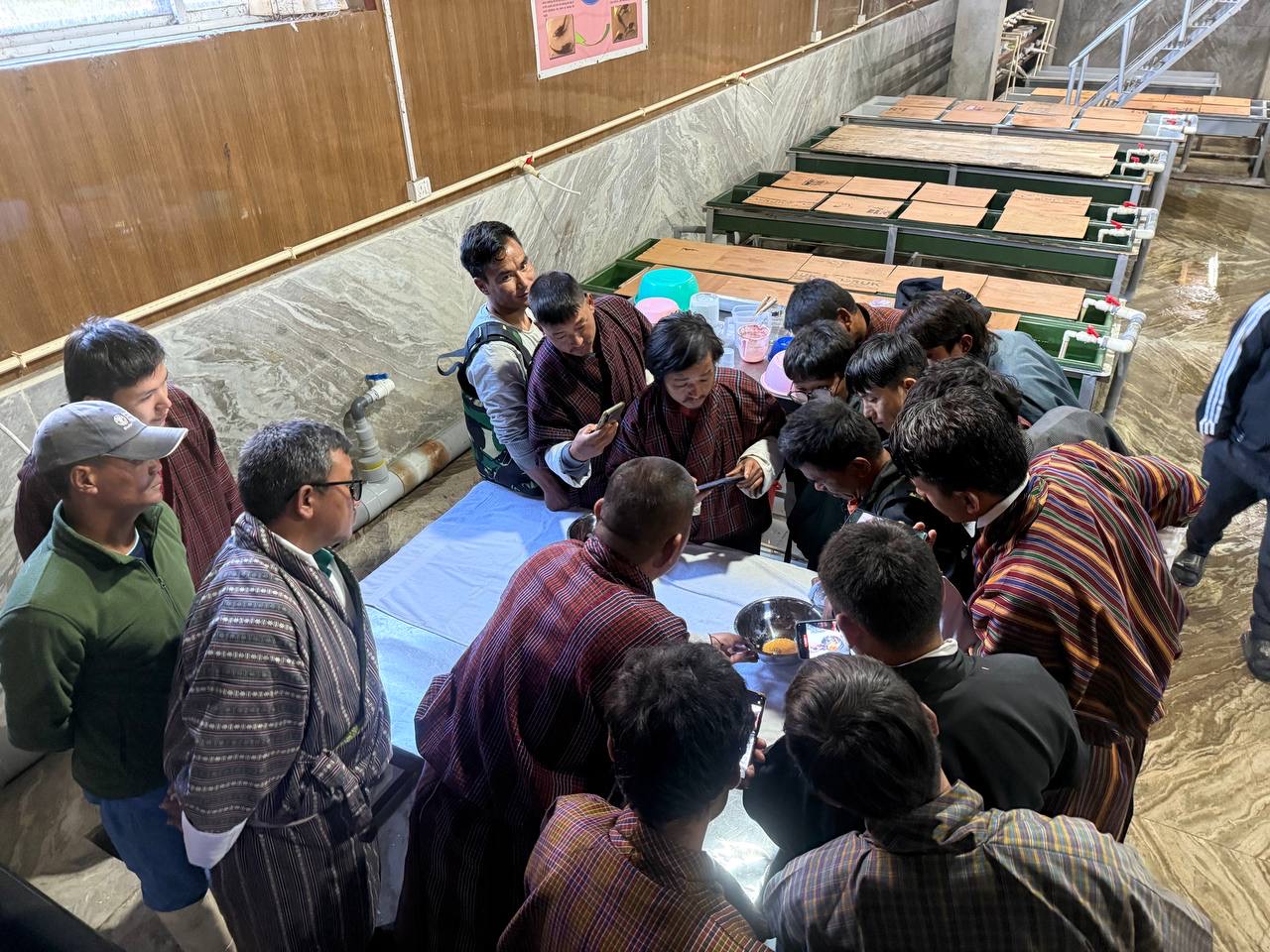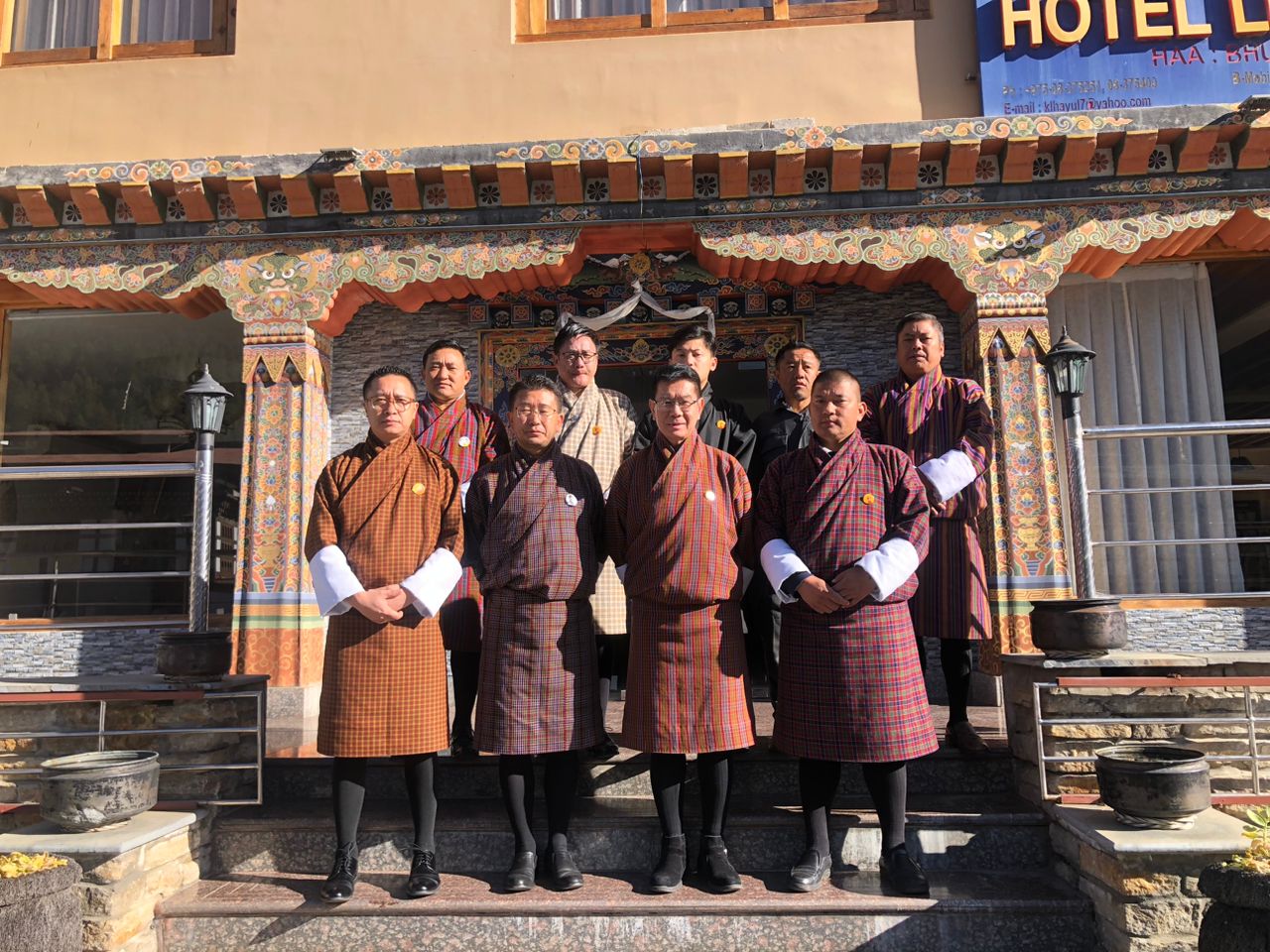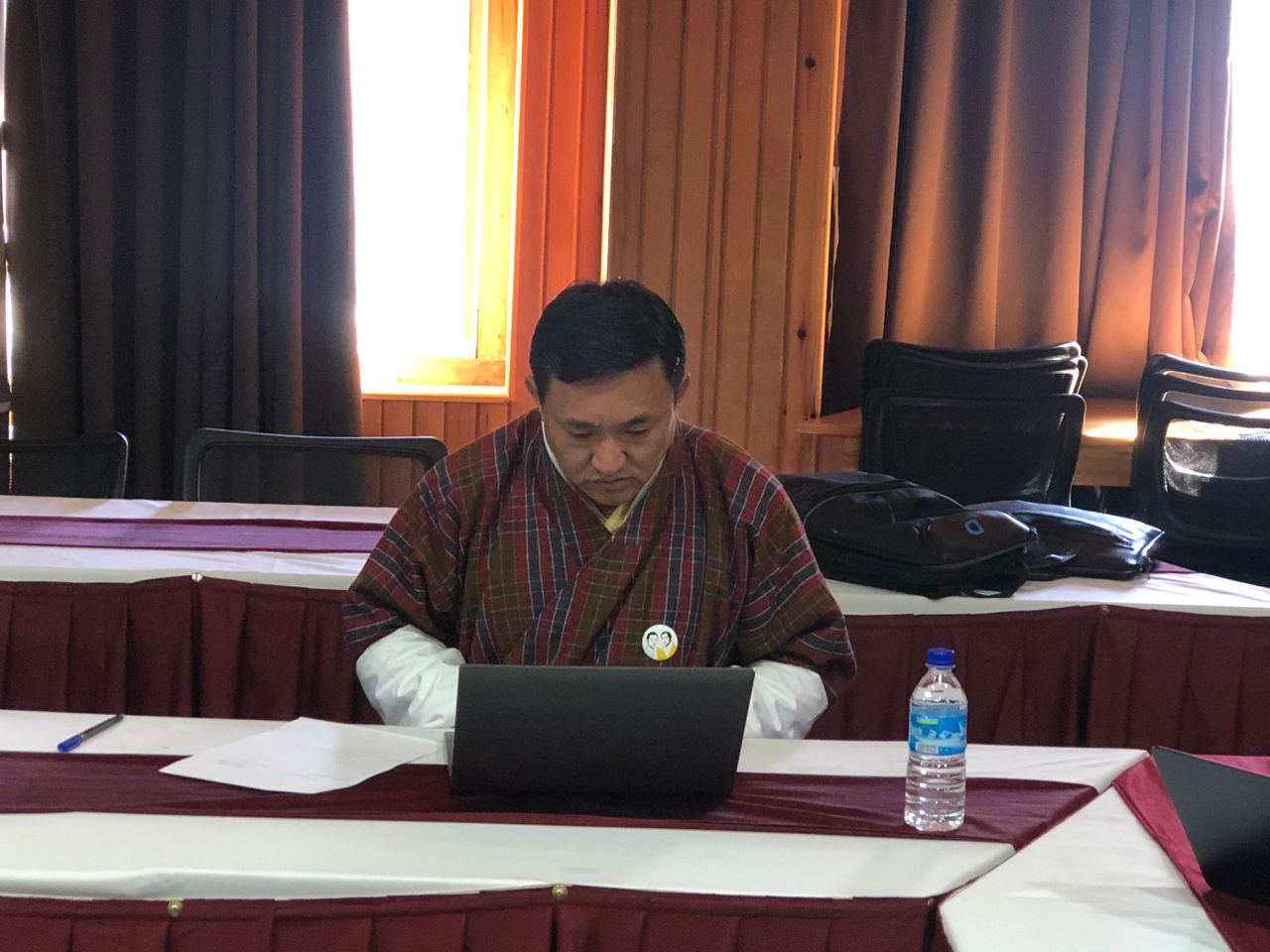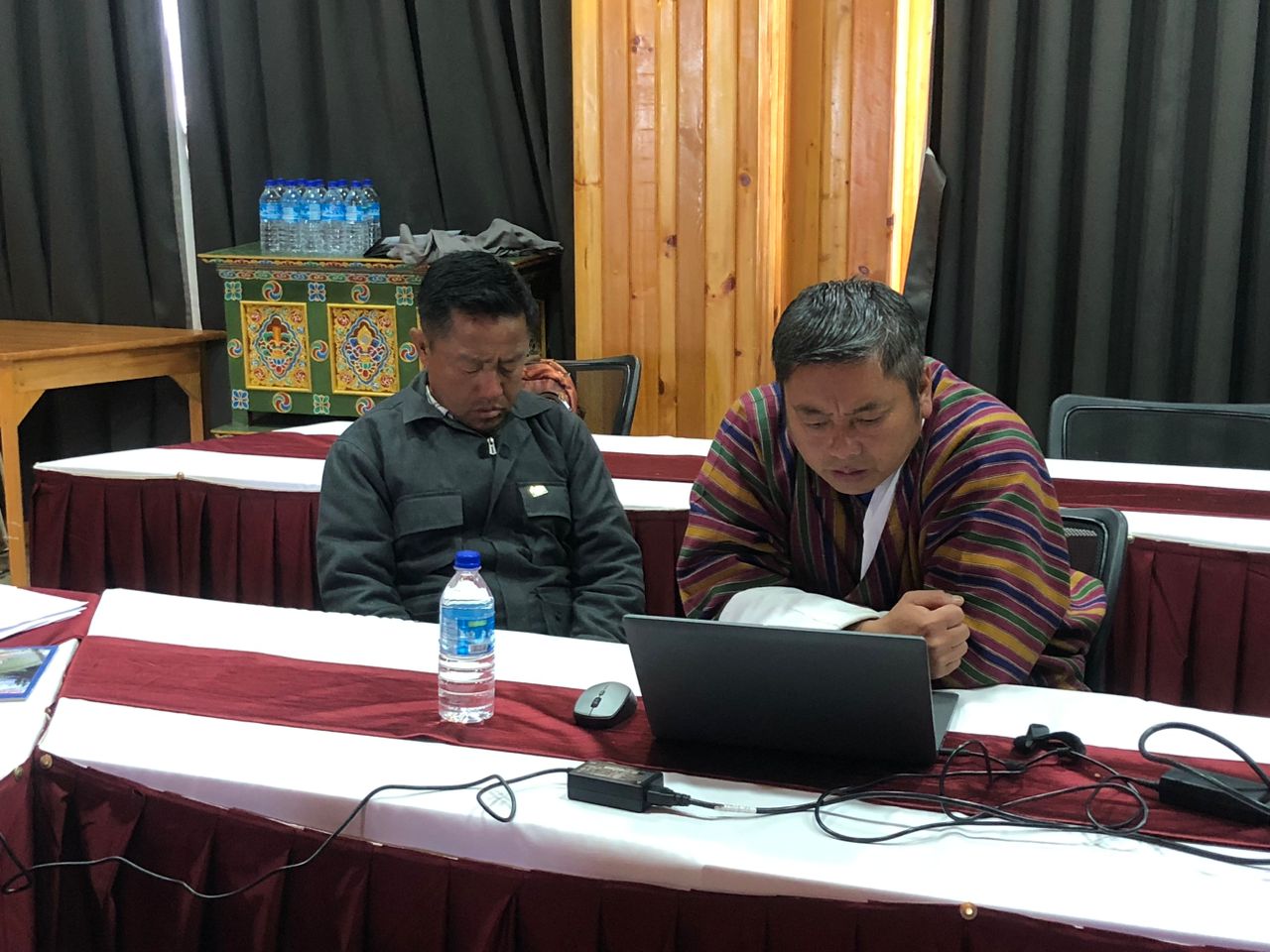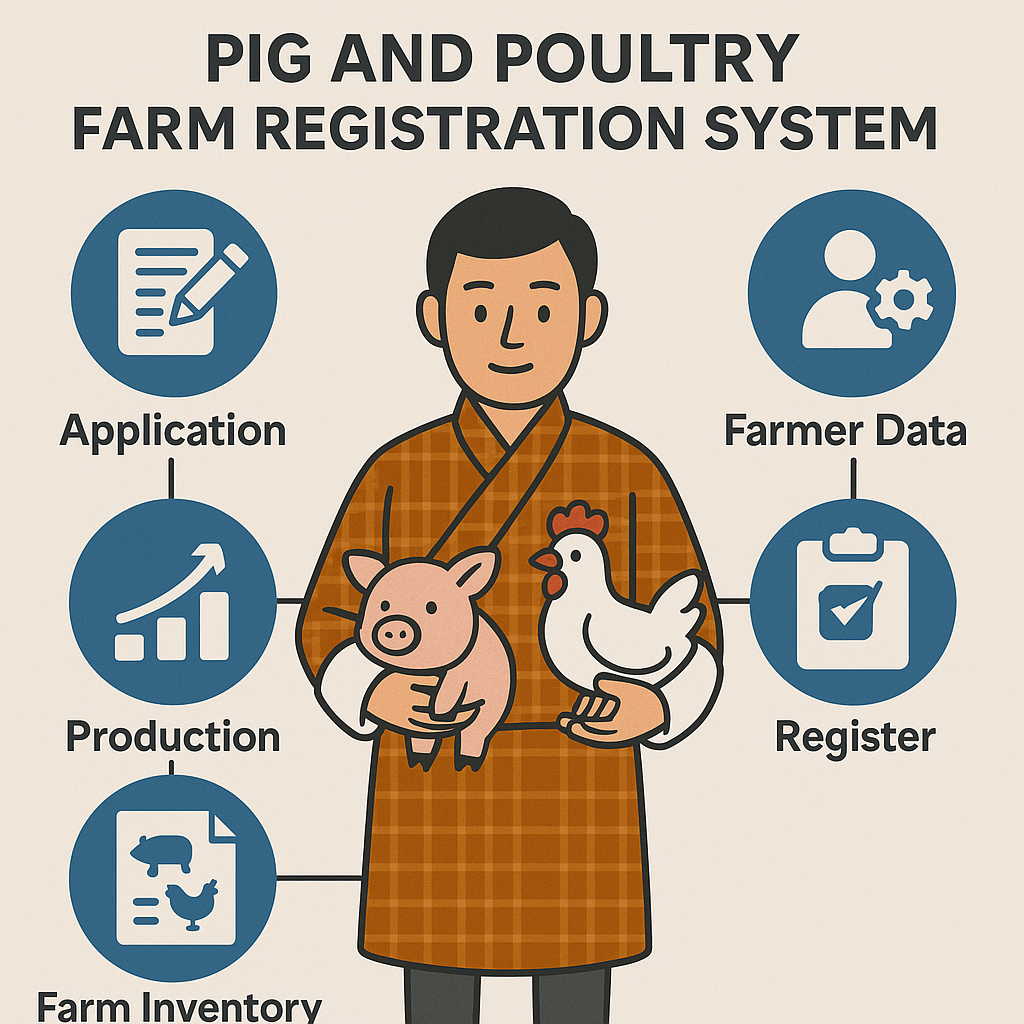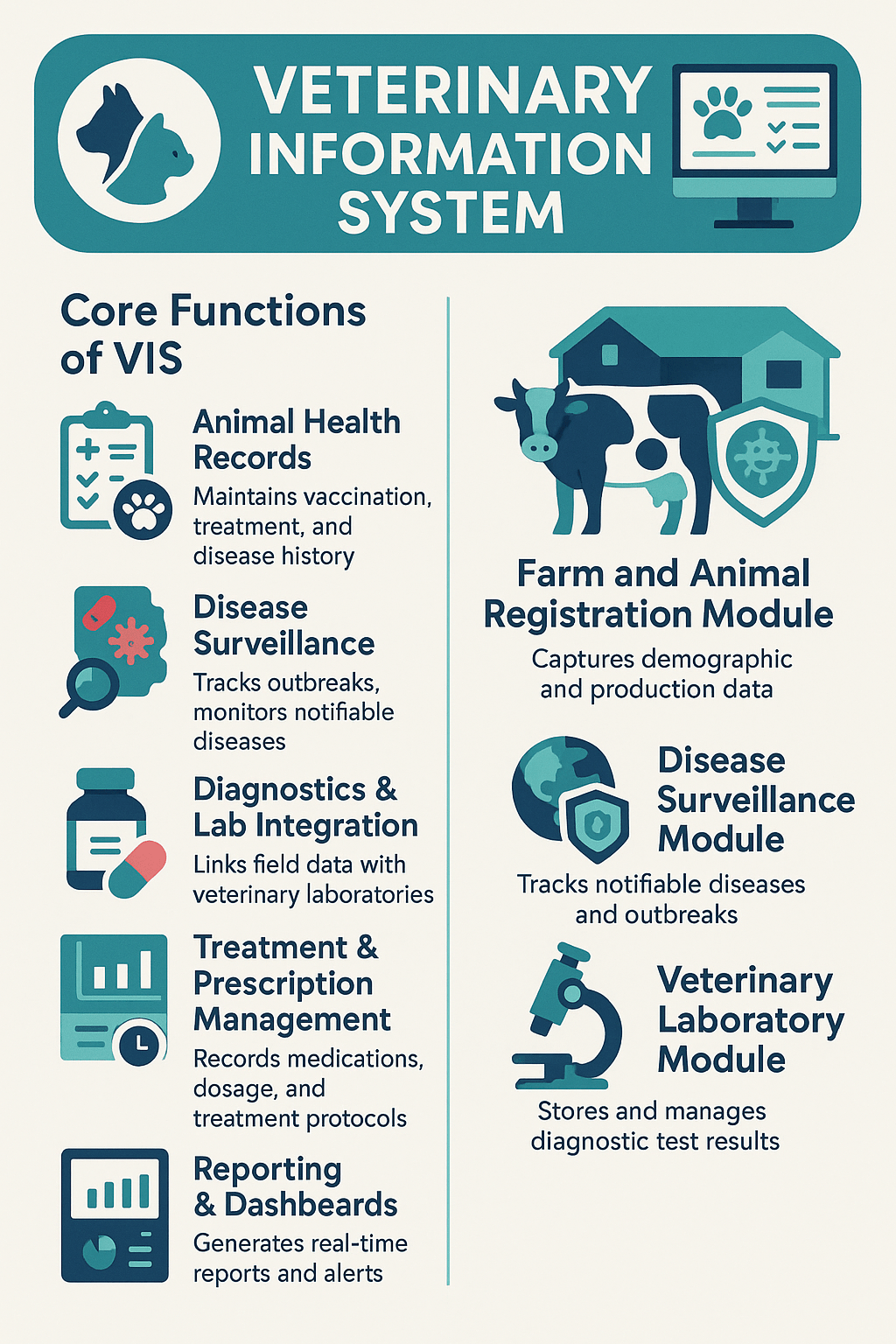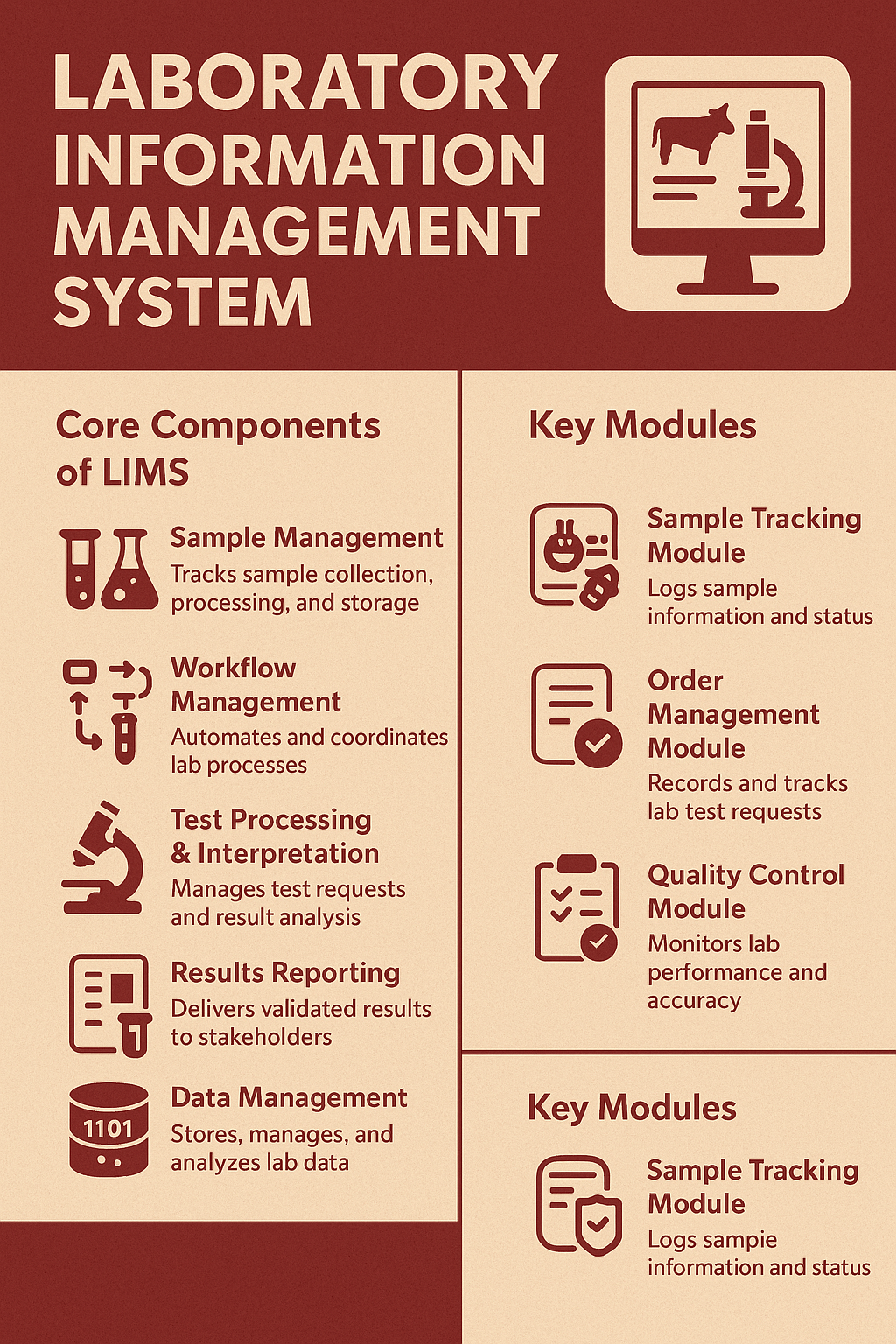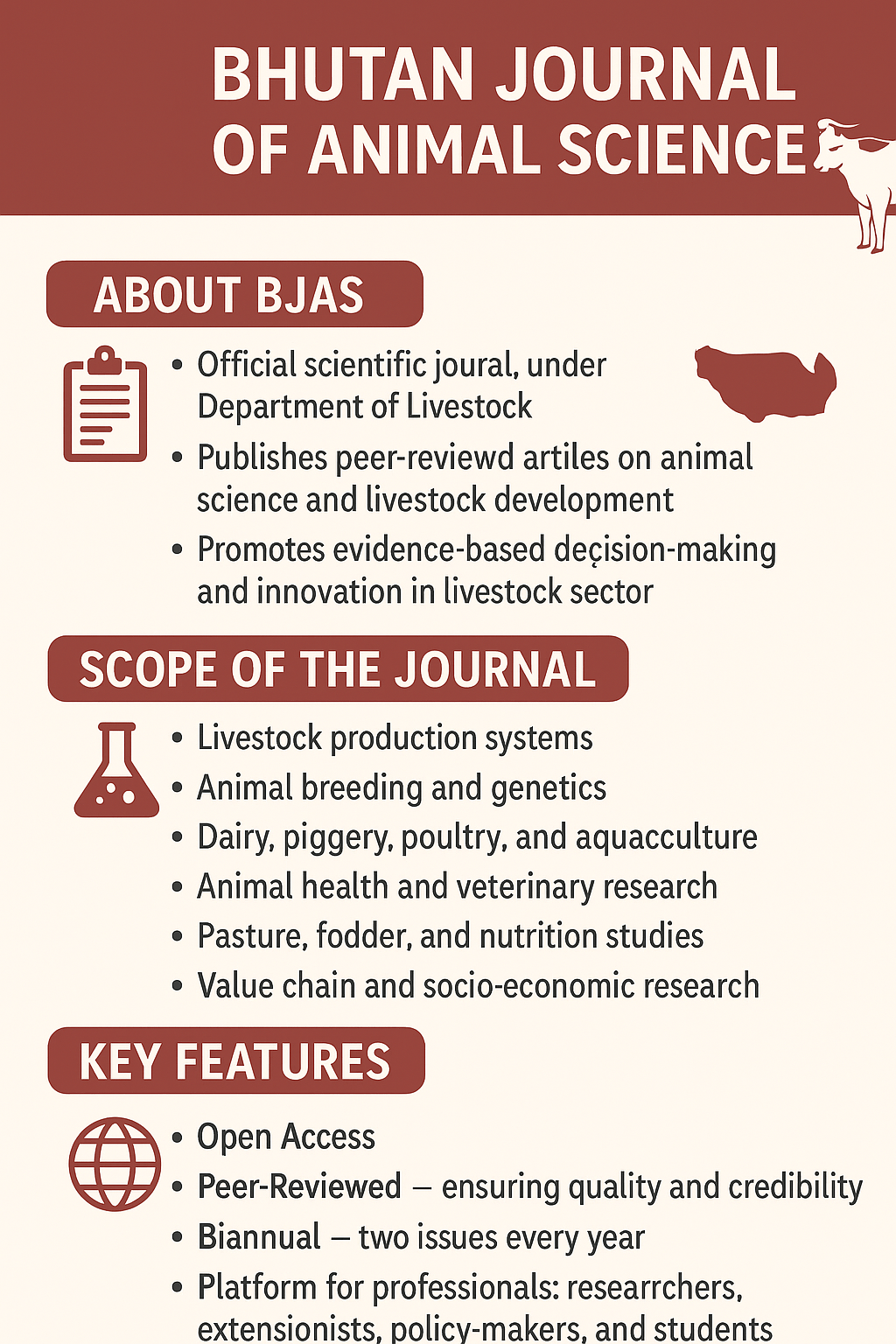Farmers from Dagana, Haa, Samtse, and Wangdue Phodrang are participating in the programme, reflecting a steady increase in interest in cold water aquaculture as a viable livelihood option. Rainbow trout has been identified as a high value aquaculture product under the 13th Five Year Plan due to suitability to local climatic conditions and potential contribution to income generation, improved nutrition, and reduction of dependence on imported fish.
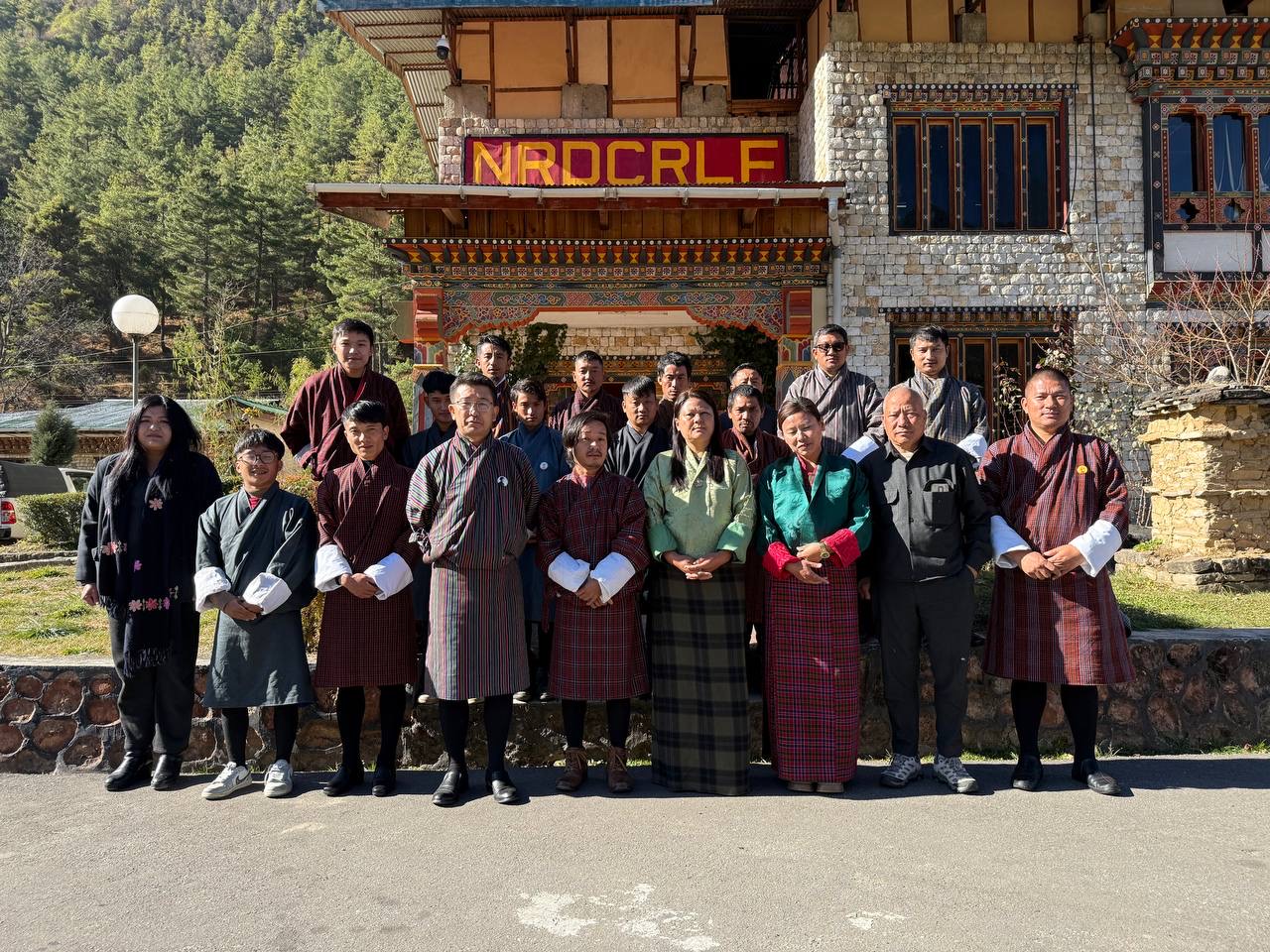
The National Research and Development Centre for Riverine and Lake Fisheries will continue to work closely with farmers, Livestock Supervisors, and Dzongkhag Livestock Sectors to support long term development of climate resilient and commercially scalable trout aquaculture across the country.
𝐀𝐛𝐨𝐮𝐭 𝐅𝐀𝐎 𝐓𝐂𝐏 𝐁𝐇𝐔𝟑𝟗𝟎𝟑 𝐏𝐫𝐨𝐣𝐞𝐜𝐭
The FAO Technical Cooperation Programme TCP BHU 3903, titled “𝐄𝐧𝐡𝐚𝐧𝐜𝐢𝐧𝐠 𝐋𝐢𝐯𝐞𝐬𝐭𝐨𝐜𝐤 𝐏𝐫𝐨𝐝𝐮𝐜𝐭𝐢𝐨𝐧 𝐄𝐟𝐟𝐢𝐜𝐢𝐞𝐧𝐜𝐲 𝐭𝐡𝐫𝐨𝐮𝐠𝐡 𝐃𝐢𝐠𝐢𝐭𝐚𝐥𝐢𝐳𝐚𝐭𝐢𝐨𝐧 𝐚𝐧𝐝 𝐏𝐫𝐞𝐜𝐢𝐬𝐢𝐨𝐧 𝐅𝐚𝐫𝐦𝐢𝐧𝐠”, was implemented in Bhutan from 2023 to 2025 in collaboration between the Department of Livestock, Ministry of Agriculture and Livestock and FAO Bhutan. The programme aimed to strengthen livestock and fisheries production systems through institutional capacity building, adoption of digital tools, and promotion of high value enterprises, contributing to national food and nutrition security and import substitution.
Key interventions under the programme included development and rollout of national farm registration and recording systems for poultry and piggery farms, modernization of dairy production systems through installation of advanced milking technology, and support for rainbow trout enterprise development. Capacity building of livestock officials, frontline personnel, and farmers formed a core component of the programme, ensuring effective use of technologies, improved production efficiency, and strengthened service delivery across value chains.
Through targeted technical assistance, infrastructure support, and training, TCP BHU 3903 laid a strong foundation for digital governance, precision farming, and commercialization of priority livestock and fisheries subsectors. The programme made a meaningful contribution to sectoral priorities under the 13th Five Year Plan and demonstrated the value of FAO technical partnership in advancing sustainable and climate suitable agrifood systems in Bhutan.
![]()

